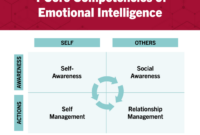Business intelligence training is the key to unlocking the transformative power of data in today’s competitive business landscape. By equipping your team with the skills to analyze, interpret, and leverage data, you can drive better decision-making, optimize operations, and propel growth.
Business intelligence training empowers you with the skills to leverage data for informed decision-making. If you’re looking to outsource your business intelligence needs, consider partnering with reputable business intelligence services companies. Their expertise can help you unlock the full potential of data analysis and drive business growth.
Business intelligence training complements these services, ensuring your team has the knowledge to maximize the value of your data.
From understanding the fundamentals to exploring emerging trends, this comprehensive guide provides a roadmap for developing and delivering impactful business intelligence training programs that will empower your workforce and transform your organization.
Introduction to Business Intelligence Training
Business intelligence training empowers individuals and organizations with the skills and knowledge to effectively gather, analyze, and interpret data to make informed decisions. In today’s data-driven business landscape, business intelligence training is essential for organizations to stay competitive and thrive.
Business intelligence training is essential for any organization that wants to stay ahead of the curve in today’s data-driven world. With the rise of businesses using artificial intelligence , the ability to collect, analyze, and interpret data is more important than ever before.
Business intelligence training can help you develop the skills you need to make better decisions, improve efficiency, and increase profitability.
Investing in business intelligence training offers numerous benefits for organizations. It enhances decision-making capabilities, improves operational efficiency, drives growth, and provides a competitive advantage.
Business intelligence training is crucial for professionals looking to enhance their data analysis and decision-making skills. This training covers the key responsibilities of a business intelligence professional, including data gathering, analysis, and presentation. By mastering these responsibilities, individuals can gain valuable insights that drive informed decision-making and improve business outcomes.
Types of Business Intelligence Training

Business intelligence training encompasses various types tailored to different needs and skill levels. Common types include:
- Introductory Training: Provides a foundational understanding of business intelligence concepts and tools.
- Advanced Training: Focuses on advanced data analysis techniques, data visualization, and data mining.
- Specialized Training: Targets specific industry or domain, such as healthcare, finance, or marketing.
- Certification Training: Prepares individuals for industry-recognized certifications, such as the Tableau Certified Associate.
Benefits of Business Intelligence Training
Business intelligence training offers significant benefits for both individuals and organizations:
- Enhanced Decision-Making: Enables data-driven decision-making, reducing uncertainty and improving outcomes.
- Improved Operational Efficiency: Streamlines processes, identifies inefficiencies, and optimizes resource allocation.
- Increased Revenue and Growth: Provides insights into customer behavior, market trends, and opportunities for growth.
Key Concepts in Business Intelligence Training
Business intelligence training covers fundamental concepts such as:
- Data Analysis: Techniques for extracting meaningful insights from data.
- Data Visualization: Visual representation of data to facilitate understanding and decision-making.
- Data Mining: Discovering hidden patterns and relationships within data.
Training also covers tools and technologies used in business intelligence, including:
- Data visualization tools (e.g., Tableau, Power BI)
- Data analysis tools (e.g., Python, R)
- Data mining tools (e.g., RapidMiner, Weka)
Best Practices for Business Intelligence Training

Effective business intelligence training requires:
- Tailoring to Organizational Needs: Aligning training content with specific business objectives and skill gaps.
- Engaging Learners: Using interactive exercises, case studies, and real-world examples to keep learners engaged.
- Practical Hands-On Training: Providing ample opportunities for hands-on practice with real-world data.
- Continuous Evaluation and Feedback: Monitoring progress and seeking feedback to improve training effectiveness.
Emerging Trends in Business Intelligence Training
Business intelligence training is evolving with advancements in technology:
- Artificial Intelligence (AI): Automating data analysis and providing real-time insights.
- Machine Learning (ML): Enabling predictive analytics and personalized training.
- Cloud Computing: Providing access to scalable and cost-effective training platforms.
These trends shape the future of business intelligence training, empowering organizations to leverage data effectively for competitive advantage.
End of Discussion
As the business world continues to evolve, business intelligence training will remain an essential investment for organizations seeking to thrive in the data-driven era. By embracing the latest trends and best practices, you can create a workforce that is equipped to make informed decisions, drive innovation, and stay ahead of the competition.
Clarifying Questions
What are the key benefits of business intelligence training?
Business intelligence training enhances decision-making, improves operational efficiency, drives growth, and provides a competitive advantage.
What types of business intelligence training are available?
There are various types of business intelligence training, including data analysis, data visualization, data mining, and business intelligence tools.
How can I design effective business intelligence training programs?
Tailor training to the specific needs of your organization, engage learners, and leverage best practices for delivering impactful training.
What are the emerging trends in business intelligence training?
Artificial intelligence, machine learning, and cloud computing are shaping the future of business intelligence training, enabling organizations to gain deeper insights from data.




